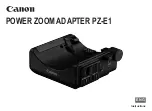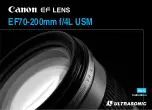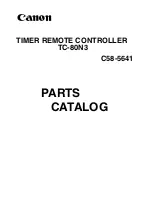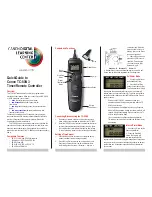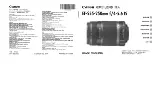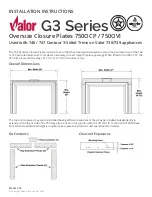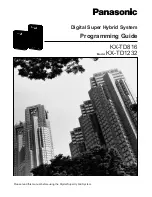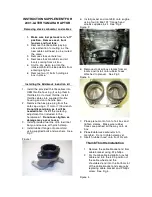
Operating Instructions (Rev. 04/02)
23
Your selection of the operating mode for the proper protec-
tion of a particular commodity should use the following
guidelines:
Examples of Products Normally Acceptable for
CYCLE-SENTRY Operation
•
Frozen foods (in adequately insulated trailers)
•
Boxed or processed meats
•
Poultry
•
Fish
•
Dairy products
•
Candy
•
Chemicals
•
Film
•
All non-edible products
Examples of Products Normally Requiring
Continuous Run Operation for Air Flow
•
Fresh fruits and vegetables, especially asparagus,
bananas, broccoli, carrots, citrus, green peas, lettuce,
peaches, spinach, strawberries, sweet corn, etc.
•
Non-processed meat products (unless pre-cooled to rec-
ommended temperature)
•
Fresh flowers and foliage
The above listings are not all inclusive. Consult your grower
or shipper if you have any questions about the operating
mode selection of your type of load.
Restarting Unit
This procedure is used when starting units that have been
shut off for short periods of time. When a unit that has been
shut off for a long period of time is first started, it should be
started and put through a pretrip.
1.
Place the On-Off switch in the ON position.
2.
After a 10 second delay, the unit should preheat and
start automatically.
NOTE: When the CYCLE-SENTRY Icon is active, the
unit may not start if: the compartment temperature is
near the setpoint, the engine is warm, and the battery
is fully charged.
If cooling or heating is required and the engine temperature
is below approximately 90 F (32 C), but the engine fails to
start automatically:
•
Turn the On-Off switch to the OFF position.
•
Check for and correct any alarm conditions and clear
the alarm codes. View the alarms with the CODE key,
clear the alarms with the CLEAR key, and then repeat
the auto start procedure. Refer to the appropriate Oper-
ation and Diagnosis Manual for detailed information
about alarms.
•
If the engine will still not start, turn the On-Off switch
to the OFF position, determine and correct the cause of
the failure.
After Start Inspection
After the unit is running, the following items can be quickly
checked to confirm that the unit is running properly.
1.
OIL PRESSURE. Check the engine oil pressure in high
speed by pressing the OIL PRESS key. The oil pressure
should read OK, not LOW.
When first starting a cold engine, the oil pressure may
be higher.
2.
AMMETER. Check the ammeter reading by pressing
the AMPS key. The ammeter should indicate normal
battery charging current. It may be fairly high right
after starting the unit, but should taper off as the battery
is recharged.
Summary of Contents for SB-III 30 SR+
Page 4: ......
Page 8: ......
Page 10: ...ii ...
Page 14: ...4 ...
Page 24: ...Unit Description Rev 04 02 14 Unit Photos Front View AGA231 ...
Page 28: ...18 ...
Page 66: ...56 ...
Page 98: ...88 ...
Page 110: ...100 ...
Page 111: ...101 Early Model Coiled Wire Fuse Link Wiring Schematic ...
Page 112: ...102 Early Model Coiled Wire Fuse Link Wiring Diagram Page 1 of 4 ...
Page 113: ...103 Early Model Coiled Wire Fuse Link Wiring Diagram Page 2 of 4 ...
Page 114: ...104 Early Model Coiled Wire Fuse Link Wiring Diagram Page 3 of 4 ...
Page 115: ...105 Early Model Coiled Wire Fuse Link Wiring Diagram Page 4 of 4 ...
Page 116: ...106 Late Model Fuse Link in Battery Cable Wiring Schematic ...
Page 117: ...107 Late Model Fuse Link in Battery Cable Wiring Diagram Page 1 of 4 ...
Page 118: ...108 Late Model Fuse Link in Battery Cable Wiring Diagram Page 2 of 4 ...
Page 119: ...109 Late Model Fuse Link in Battery Cable Wiring Diagram Page 3 of 4 ...
Page 120: ...110 Late Model Fuse Link in Battery Cable Wiring Diagram Page 4 of 4 ...































